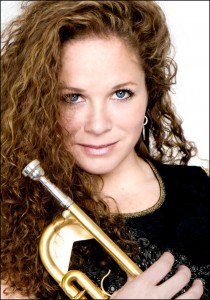By Katherine Cole
I’ve already written about musicians expressing their political views..now it’s time for the flip side, when politicians start talking music.
It’s happening amidst a lot of drama in the northeastern state of Massachusetts. There is a bill in the Commonwealth’s House of Representatives that would name “Roadrunner” by Jonathan Richman and the Modern Lovers, the state’s official rock song. Personally, I think it’s a brilliant idea. The 70’s tune (which I confess was a major part of the soundtrack of my college years in Boston) first appeared on the Modern Lover’s legendary debut disc and it’s a paean to Massachusetts. The verses are filled with shout-outs to local highways (Route 128), the hometown grocery store chain ( Stop & Shop) and native son Richman’s own declarations of “I’m in love with Massachusetts.” Hear it for yourself in this video, complete with photos and footage of the era.
“It’s an unabashed valentine” to Massachusetts says Joyce Linehan, a publicist who came up with the idea of making it the Bay State’s official rock song. The bill is sponsored by Democratic state Representative Marty Walsh, but is truly a bipartisan effort– Republican Robert Hedlund has signed on as the sponsor in the Senate.
The push to name “Roadrunner” the “Official Rock Song” of Massachusetts is getting a lot of attention, both at home and around the world. It was the subject of an editorial in the Boston Globe newspaper this week, debated on local talk shows, and talked about all around the world– there’s a Facebook group and stories have appeared on the BBC, the CBC and in the Guardian.
So where’s the drama?
Well, once the “Roadrunner” movement started gaining attention, two other state Representatives, Josh Cutler and James Cantwell, decided a better choice would be Aerosmith’s “Dream On.” “With all due respect, Aerosmith is the bestselling American rock band of all time,” Cantwell told the State House news service. “No band is more closely associated with Massachusetts.”

From left Joe Perry, Steven Tyler, Joey Kramer, Tom Hamilton and Brad Whitford of Aerosmith speak back stage at the 16th Annual Rock and Roll Hall of Fame Induction Dinner, Monday, March 19, 2001, in New York. (AP Photo/Ed Betz)
One might quibble that the title of “America’s biggest-selling rock band” goes to the Eagles, not Aerosmith. (The Eagles disc “Their Greatest Hits 1971-1975” is certified 29-times Platinum by the RIAA, and is tied with Michael Jackson’s “Thriller” as the top-selling album ever released in the U.S.) As for Aerosmith being “closely associated” with Massachusetts–that has nothing to do with this discussion. We’re talking about songs here, not image. There’s no mention of Massachusetts anywhere in the lyrics of “Dream On”, whereas Roadrunner has the line “I’m in love with Massachusetts” and plenty of local imagery.
The fight rages on. Richman, while flattered, thinks this is a non-issue. His comment, to the Globe through an assistant, is: ‘Thank you so much, it’s very flattering….but I don’t think the song is good enough to be a Massachusetts song of any kind.” Jerry Harrison, who played on the original Modern Lovers track before joining the Talking Heads sounded a bit happier, telling Rolling Stone “I can’t tell you how many congratulatory emails I’ve gotten.”
Cantwell has told the Boston Herald that one way to settle things might naming Aerosmith the official rock band of Massachusetts. But I have a feeling that would open up a whole new can of worms. Massachusetts has spawned so many other great rock bands (The Cars, Boston, J. Geils Band/Peter Wolf, are the first three to pop into my head) that the fight could last for decades.
By the way, Massachusetts already has an official song (“All Hail to Massachusetts”), and an official folk song, (“Massachusetts” by Arlo Guthrie) and an official polka. You can hear them all here.




